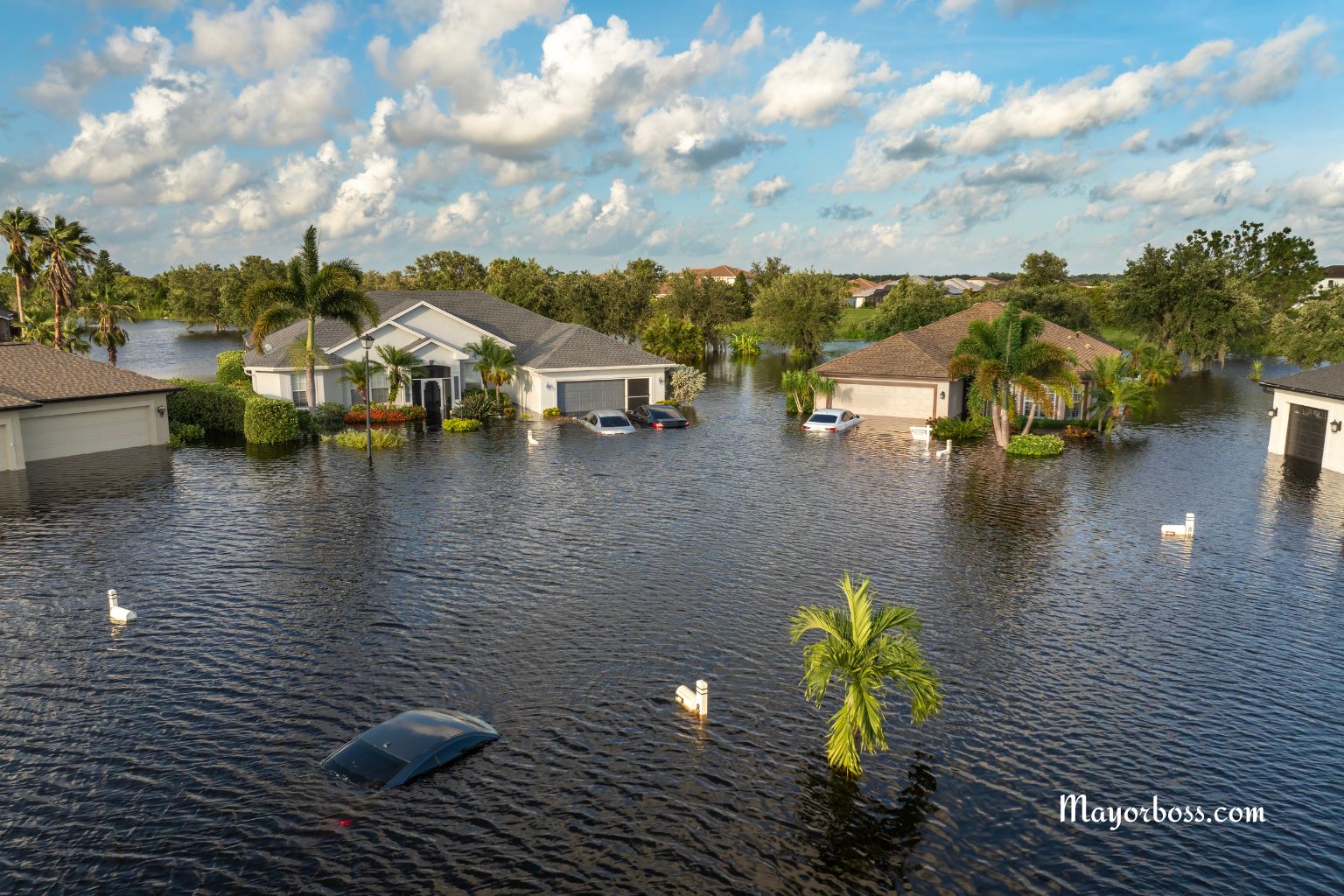How To Prepare for a Flood
To prepare for a flood, know your local risk, have an emergency kit ready, create a family plan, protect your home, and stay informed through reliable alerts such as those from the Federal Emergency Management Agency (FEMA). Acting early can protect your health and safety.

First, find out if you live in a flood-prone area. Check local maps or ask local authorities. The Federal Emergency Management Agency (FEMA) provides detailed flood maps and risk assessments. You can visit the FEMA Flood Map Service Center online to see if your home is at risk. Flood risk depends on your location, weather patterns, and the time of year. Even if your area hasn’t flooded before, sudden heavy rain or nearby river overflow can still cause flooding.
Make a Family Emergency Plan
Talk with everyone in your household about what to do if a flood warning is issued. Decide how you will communicate if you are not together. Choose a safe meeting place. Keep a list of emergency contacts, including family, neighbors, and local emergency services.
Write down important phone numbers. Store them in your phone and on a paper list in your wallet or emergency kit.
Prepare an Emergency Kit
Your emergency kit should be easy to carry. Pack enough supplies to last at least 3 days. Include the following:
- Bottled water (at least 1 gallon per person per day)
- Non-perishable food items (granola bars, canned goods)
- Flashlights and extra batteries
- First-aid kit with any necessary medications
- Personal hygiene items (toothbrush, wipes, sanitizer)
- Important documents in a waterproof bag (IDs, insurance, prescriptions)
- Cash in small bills
- Cell phone charger and power bank
- Extra clothes, sturdy shoes, and rain gear
- Blankets or sleeping bags
If you have pets, add their food, leashes, and any medicines they need.
Protect Your Home Before a Flood
There are steps you can take ahead of time to lower your risk of damage:
- Clear gutters and drains around your home.
- Move valuable items to upper floors or high shelves.
- Store chemicals and cleaning products safely away from floodwater.
- Place sandbags or flood barriers where water could enter.
- Unplug electronics and move them to a higher location.
- Know how to shut off gas, electricity, and water in your house.
Stay Informed and Be Ready to Act
Sign up for local emergency alerts from weather services or community groups. Download official apps if available. Always listen for flood watches and warnings.
If authorities tell you to evacuate, do so without delay. Floodwater can rise quickly, trapping people and vehicles. Do not wait.
What to Do If a Flood Warning Is Issued
When a warning comes:
- Move to higher ground right away.
- Do not walk, swim, or drive through floodwater. Even a few inches can sweep you off your feet or carry a car away.
- Bring your emergency kit and pets.
- Follow official instructions from local authorities.
If you must stay at home:
- Stay in the highest part of your house.
- Keep listening to emergency updates.
- Avoid using electrical appliances if the floor is wet.
After the Flood: Safety First
Only return home when officials say it is safe. Watch out for debris, mud, and sharp objects. Floodwater can contain bacteria, sewage, and chemicals. Wear gloves and boots for cleanup. Discard food, medicine, and water that came in contact with floodwater.
Check your house for damage. Do not touch electrical equipment if it is wet. Contact your insurance company as soon as possible.
Tips for People with Special Health Needs
If you take regular medicines, keep a week’s supply in your emergency kit. People with health conditions should keep a list of all medications and doses. Medical devices should be fully charged before any severe weather. Ask your doctor about extra steps you may need.
If you use oxygen, dialysis, or other life-sustaining equipment, register with local emergency services.
Protect Your Health
Floods increase the likelihood of infections, injuries, and mental stress. Wash hands regularly, avoid wading in floodwater, and take breaks during cleanup to avoid exhaustion. Stay in touch with loved ones for emotional support.
Frequently Asked Questions
1. How can I tell if my home is at risk for flooding?
Check flood maps, talk to local emergency management, and consider past weather events in your area.
2. What should I do if I am trapped in a car during a flood?
Leave the car and move to higher ground if you can do so safely. Never try to drive through floodwater.
3. Can I drink water after a flood?
Not unless authorities confirm it is safe. Floods often contaminate local water supplies.
4. Should I use candles during a power outage caused by flooding?
Use flashlights instead. Candles increase the risk of fire, especially if you need to leave quickly.
5. What documents should I protect from floods?
Store birth certificates, insurance policies, medical records, and identification in a waterproof bag.






